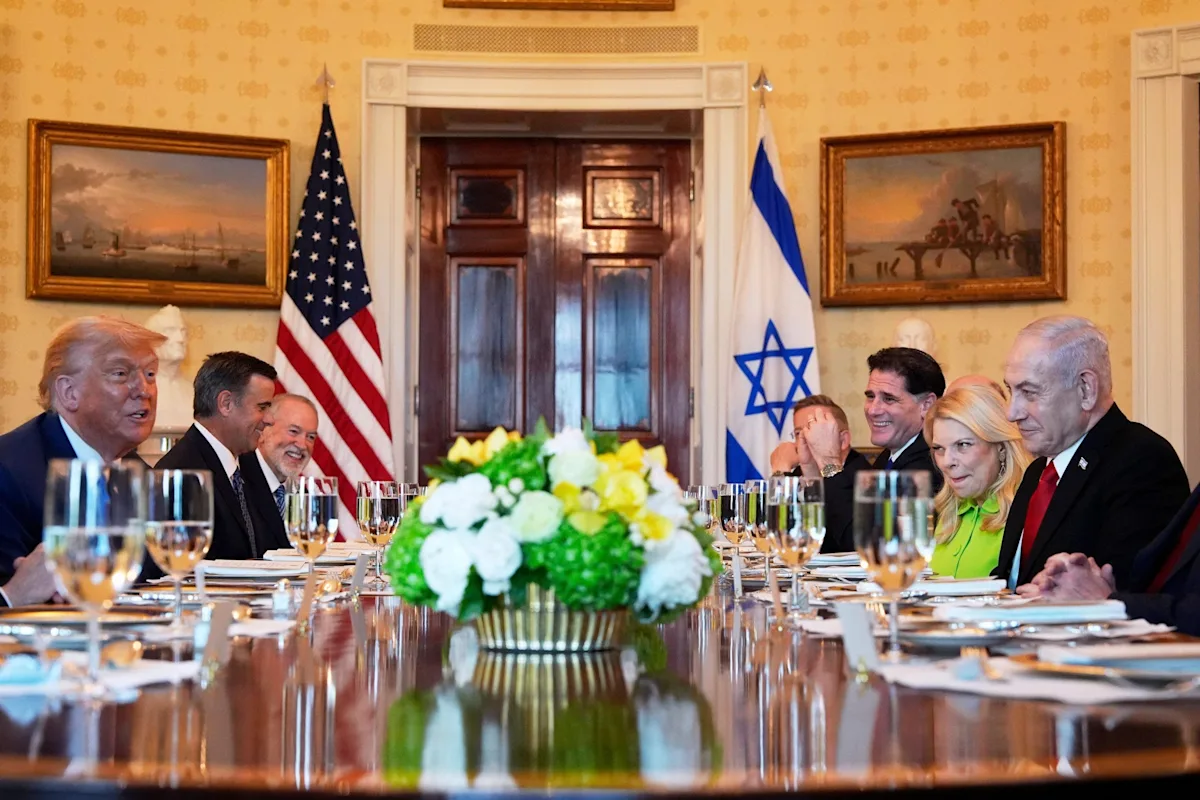In a powerful diplomatic and military showcase, former U.S. President Donald Trump and Israeli Prime Minister Benjamin Netanyahu have declared a “historic victory” following a joint operation that targeted key Iranian nuclear facilities. The announcement was made during a high-profile meeting, where both leaders emphasized their shared goal of reshaping the geopolitical future of the Middle East.
Military Strike Sends Strong Message
The recent military strikes reportedly dismantled critical infrastructure within Iran’s nuclear program. Trump credited Israeli intelligence and American precision for the success, calling it “a turning point” in curbing Iran’s nuclear ambitions. Netanyahu described the mission as “decisive,” stating that Iran has now “paid the price” for its continued defiance and regional aggression.
The strike was viewed not just as a military maneuver, but as a demonstration of resolve—especially to other actors in the region. Both leaders positioned the event as a warning to hostile nations and a reaffirmation of their countries’ alliance.
Nobel Nomination and Diplomatic Push
Netanyahu took the moment further by nominating Trump for the Nobel Peace Prize, citing his role in expanding diplomatic ties in the region and supporting Israel’s security. He praised Trump for his leadership during a time of growing instability, framing the strike not only as a defensive act but as a step toward peace.
Trump, meanwhile, used the platform to reintroduce a renewed vision for peace in the Middle East. He called on Arab nations to follow through on the normalization efforts he previously launched, aiming to broaden economic and security partnerships between Israel and other regional powers.
Gaza Ceasefire Talks on the Horizon
With Iran’s nuclear program temporarily stalled, attention now shifts to the long-running conflict in Gaza. Trump promoted a new 60-day ceasefire initiative that includes humanitarian relief, partial military withdrawal, and the release of hostages. While some factions have expressed willingness to consider the terms, deep disagreements remain over control of Gaza and long-term governance.
Netanyahu remains cautious, insisting that Israel’s security must be guaranteed and that any deal should not empower hostile entities. His government, facing internal political pressure, walks a delicate line between pursuing peace and maintaining military strength.
Strategic Gamble or Sustainable Peace?
Political analysts are divided. Some believe the joint effort has opened a genuine pathway toward regional stability, particularly if the ceasefire talks gain traction. Others warn that the strikes may provoke further retaliation, especially if Iran seeks to rebuild and respond in kind.
The stakes are high. For Trump, the operation adds to his legacy of bold foreign policy. For Netanyahu, it’s a bid to regain control over an increasingly volatile security environment while managing pressures from both allies and critics at home.
What Comes Next?
The coming weeks will determine whether this “historic victory” can be translated into lasting peace or whether it triggers further unrest. Both leaders have made it clear they intend to continue shaping the region on their terms—with or without broader international consensus.
As the dust settles, the Middle East finds itself at yet another crossroads—caught between the echoes of past conflicts and the fragile hope of a different future.
















Leave a Reply